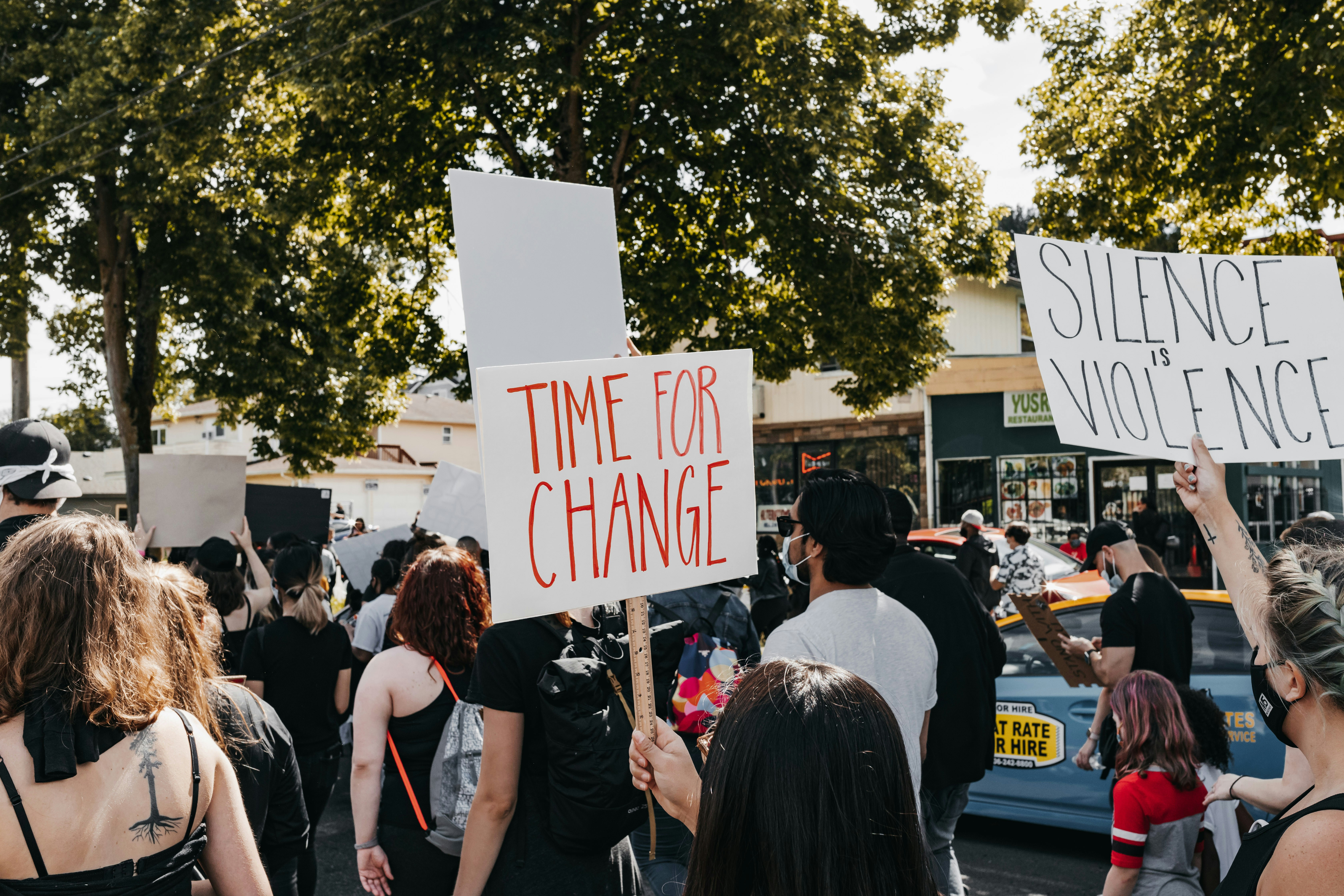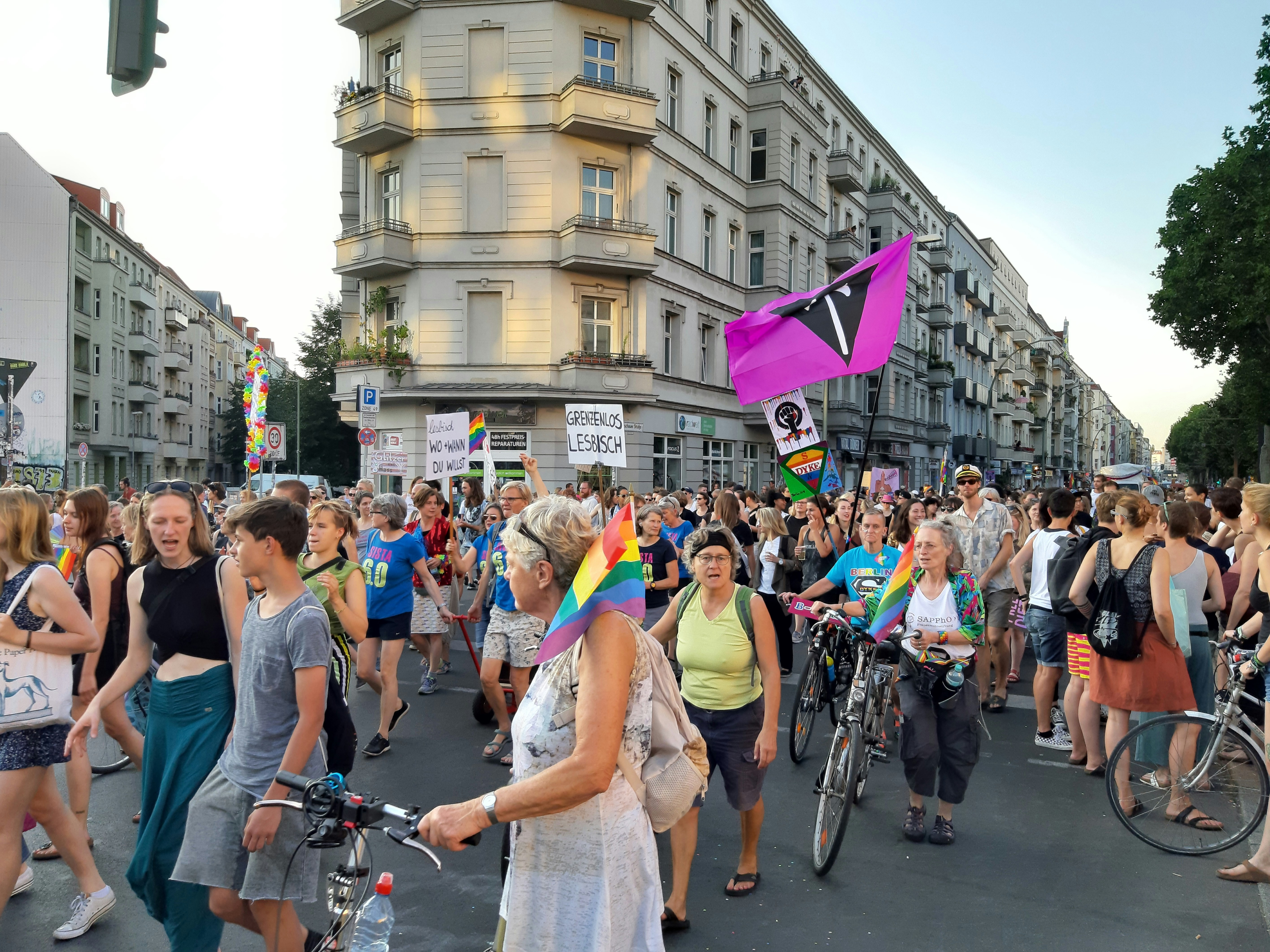Increasing Far-Right and the Question of Gender Equality

Table of Contents
- Increasing Far-Right and the Question of Gender Equality
- Far-right parties and gender equality
- Far-right’s winning: anti-gender movements
- Is gender equality under threat?
- Conclusion
Increasing Far-Right and the Question of Gender Equality
In today’s world, the rise of far-right ideologies poses a significant threat to the ideal of gender equality. This challenge is not confined to a single nation; rather, the backlash against gender equality, particularly affecting LGBTQIA+ communities, is becoming increasingly visible on a global scale. Even within the European Union (EU), some member states contravene established EU norms regarding equality. This situation casts doubt on the EU’s credibility in claiming global leadership in promoting gender equality. Furthermore, the current political climate in the United States amplifies the opposition to gender equality. This article analyses the attitudes of far-right movements towards gender equality.
Far-right parties and gender equality
Most far-right parties share similar ideologies concerning gender equality, typically adopting a traditionalist perspective. These parties often advocate a return to conventional family values, assert control over women’s bodies, and engage in coordinated international campaigns against abortion and feminist movements. These campaigns reflect a broader anti-feminist agenda that is central to the international far-right movement. The desire to control women’s reproductive rights can be interpreted as an effort to regulate demographic and ethnic composition within states (Gálvez Muñoz, 2025).
Two primary approaches to gender equality can be identified within the far-right: the traditionalist and the utilitarian. In Northern Europe, far-right parties often refrain from directly addressing gender equality, instead embedding their positions within family and immigration policies. For instance, the Danish People’s Party (DF) in Denmark and the Party for Freedom (PVV) in the Netherlands praise their nations' high levels of gender equality. Yet, they instrumentalise these achievements to marginalise foreigners, particularly Muslims (Mudde & Kaltwasser, 2015). This demonstrates how gender equality can be co-opted to support discriminatory narratives.

© Photo by jens schwan on Unsplash
In contrast, other far-right parties adopt a more overtly traditionalist stance. The Alternative for Germany (AfD), for example, promotes the view that women should primarily assume the role of mothers. The party maintains a strong anti-feminist position and champions the preservation of the traditional family structure. It opposes gender mainstreaming, gender studies, marriage equality, LGBTQIA+ rights, state-supported birth control, and gender equality education in schools, all of which are seen as threats to traditional family values (Gilloz et al., 2017). Compared to the Northern European examples, this position more explicitly rejects modern gender norms.
Thus, across various contexts, gender issues are consistently manipulated in accordance with far-right ideologies. In the Netherlands, gender equality is used to exclude Muslim migrants, while in Germany, it is undermined in favour of traditional family values.
Far-right’s winning: anti-gender movements
Far-right parties have played a significant role in facilitating the rise of anti-gender movements, which are fundamentally rooted in the belief that men and women are inherently unequal. Consequently, these movements strongly oppose the concept of gender equality. Central to their ideology are appeals to religion and "natural order," which they use to justify their rejection of modern gender rights frameworks. Supporters of these movements reject marriage equality, reproductive rights, abortion, gender mainstreaming, transgender rights, anti-discrimination policies, and even the broader concept of gender itself.
There are notable examples of this trend across Europe, particularly in France and Italy. In both countries, concerned parents organised protests against the inclusion of sex education in school curricula, framing their opposition as resistance to so-called “gender ideology” (Kuhar & Zobec, 2017). Since the mid-2000s, the anti-gender movement has gained momentum. Key events include protests against sex education in Croatia (2006), demonstrations against same-sex civil partnerships in Italy (2007), opposition to marriage equality in Slovenia (2009, and the mobilisation of the “Manif pour Tous” movement in France in 2010 (Paternotte & Kuhar, 2018).
The Istanbul Convention on preventing and combating violence against women and domestic violence has also become a primary target of anti-gender movements. The Convention has come to symbolise broader debates surrounding gender and equality, making it a focal point for opposition. In 2016, Bulgaria signed the Convention; however, the Bulgarian Constitutional Court later declared it unconstitutional on the grounds that it conflicted with the country’s binary definition of gender. A similar situation has emerged in Poland, where, despite the Convention’s ratification in 2015, the Polish Parliament has actively considered withdrawal, citing concerns that it disrespects religious values and promotes so-called “gender ideology” (Wittenius, 2022).
The Istanbul Convention is not the only international framework under attack. LGBTQIA+ rights are increasingly at risk across several EU member states. For instance, although Slovakia signed the Convention in 2011, its Parliament later rejected ratification, arguing that it endorses “gender ideology” and legitimises same-sex marriage. Similarly, Hungary, which also signed the Convention in 2011, has refused to ratify it, asserting that the concept of gender embedded in the Convention conflicts with national culture and traditions (Wittenius, 2022).
These cases illustrate how anti-gender movements have successfully influenced public discourse and policymaking, contributing to setbacks in the advancement of gender equality and human rights within the European Union.
Is gender equality under threat?
Currently, there is a marked backlash against gender equality in both Europe and the United States. Hungary provides one of the most notable examples of this trend. According to the 2024 Gender Equality Index by the European Institute for Gender Equality (EIGE), Hungary scored 57.8 out of 100, ranking 26th among EU member states, well below the EU average of 71.0. Several factors contribute to this low ranking. Hungary has not ratified the Istanbul Convention on preventing domestic violence, arguing that it imposes gender ideologies (Mizsei, 2024). On March 18, 2025, the Hungarian Parliament passed a law banning Pride events, widely condemned as an attempt to suppress LGBTQI+ communities (González Cabrera, 2025). This followed a 2021 law prohibiting the portrayal and promotion of LGBTQIA+ content to children (Ibid.). Under Prime Minister Viktor Orbán’s right-wing government, the repression of LGBTQIA+ rights has become a sustained policy.

©Photo by Vlad Tchompalov on Unsplash
Hungary is not alone. The recently elected U.S. administration has similarly launched a broad attack on gender rights. In January 2025, President Donald Trump assumed office and immediately began targeting gender-related protections, particularly those affecting LGBTQIA+ individuals. His administration has rolled back numerous rights and protections, denied the existence of trans identities, and undermined women’s and LGBTQIA+ movements (Tuckey, 2025). On January 20, 2025, a series of executive orders and presidential actions curtailed the rights of transgender and non-binary individuals, dismantled Diversity, Equity, Inclusion, and Accessibility (DEIA) programs, and reduced protections for reproductive health and workplace equity (Ibid.). The White House justified these actions as efforts to "protect women from gender ideology extremism," including an executive order to prevent federal funding from being used to promote gender ideology (Brechenmacher, 2025).
While the contexts of Europe and the United States differ, the ideological underpinnings of far-right resistance to gender equality are strikingly similar. In both cases, far-right actors seek to restrict LGBTQIA+ and women’s rights under the pretext of defending traditional family values. Their ultimate aim is to reassert patriarchal and heteronormative social structures.
Conclusion
Some may argue that international politics should focus on more pressing issues. However, without gender equality, genuine progress is unattainable. Global conflicts, including those within Europe, disproportionately affect women, girls, and LGBTQIA+ individuals. Crises and wars often justify governments to curtail gender rights. As demonstrated above, some far-right parties use these conditions to marginalise migrants, while others invoke the rhetoric of protecting traditional families.
The growing influence of the far-right endangers the hard-won achievements of the gender equality movement. To counter this threat, civil society must amplify its voice at all levels. Raising public awareness of the importance of gender equality can serve as a powerful tool to resist far-right agendas and delegitimise their anti-gender narratives.
Moreover, as the EU aspires to global leadership in gender equality, it must first ensure consistent adherence to equality norms within its own borders. The EU’s credibility in promoting gender equality abroad depends on its ability to uphold those values among its member states. Without internal coherence, the EU’s external influence will remain limited.
Resources
Brechenmacher, S. (2025). Trump’s “Gender Ideology” Attacks Are Following a Global Movement. Carnegie. https://carnegieendowment.org/emissary/2025/02/trump-gender-ideology-global-trend-women-lgbtq-rights?lang=en
European Institute for Gender Equality. (2024). Gender Equality Index, Hungary in 2024 edition, https://eige.europa.eu/gender-equality-index/2024/country/HU#:~:text=With%2057.8%20points%20out%20of,knowledge%20(%2B%200.8%20points)%20domains.
Gálvez Muñoz, L. (2025). An antidote against the far-right international: more feminism!, The Progressive Post, FEPS, https://feps-europe.eu/an-antidote-against-the-far-right-international-more-feminism/
Gilloz, O., Hairy, N. & Flemming, M. (2017). Getting to know you: mapping the anti-feminist face of right-wing populism in Europe, openDemocracy, https://www.opendemocracy.net/en/can-europe-make-it/mapping-anti-feminist-face-of-right-wing-populism-in-europe/
González Cabrera, C. (2025). Hungary Bans LGBT Pride Events. Human Rights Watch, https://www.hrw.org/news/2025/03/20/hungary-bans-lgbt-pride-events
Hörst, C. & Groenendaal, L. (n.d.). Manipulating the Vote: How Populists Exploit Gender Roles, GMF, https://www.gmfus.org/news/manipulating-vote-how-populists-exploit-gender-roles
Kuhar, Roman, and Zobec, Aleš. “The Anti-Gender Movement in Europe and the Educational Process in Public Schools.” CEPS Journal, vol. 7, no. 2, 2017, www.pedocs.de/frontdoor.php?source_opus=14594
Mizsei, B. Hung(a)ry for gender equality deliberation in a conservative EU. CEPS, https://www.ceps.eu/hungary-for-gender-equality-deliberation-in-a-conservative-eu/
Mudde, C., & Kaltwasser, C. R. (2015). Vox populi or vox masculini? Populism and gender in Northern Europe and South America. Patterns of Prejudice, 49(1–2), 16–36. https://doi.org/10.1080/0031322X.2015.101419
Tuckey, S. (2025). Trump on Gender: The Dehumanisation is the Point. OXFAM, https://politicsofpoverty.oxfamamerica.org/trump-on-gender/
Paternotte, David, and Kuhar, Roman. “Disentangling and Locating the 'Global Right”: Anti-Gender Campaigns in Europe.” Politics and Governance, vol. 6, no. 3, 14 Sept. 2018, https://doi.org/10.17645/pag.v6i3.1557
Wittenius, Marie. “The Transnational Anti-Gender Movement in Europe | Gunda-Werner-Institut.” Heinrich-Böll-Stiftung, 3 Feb. 2022, https://gwi-boell.de/en/2022/02/03/the-transnational-anti-gender-movement-europe

